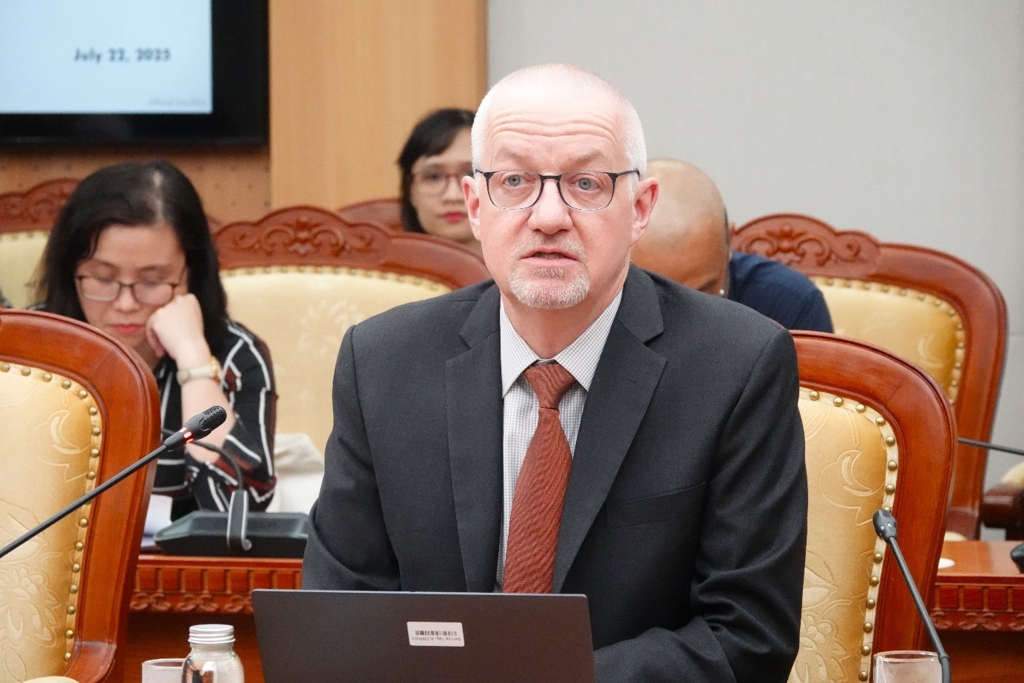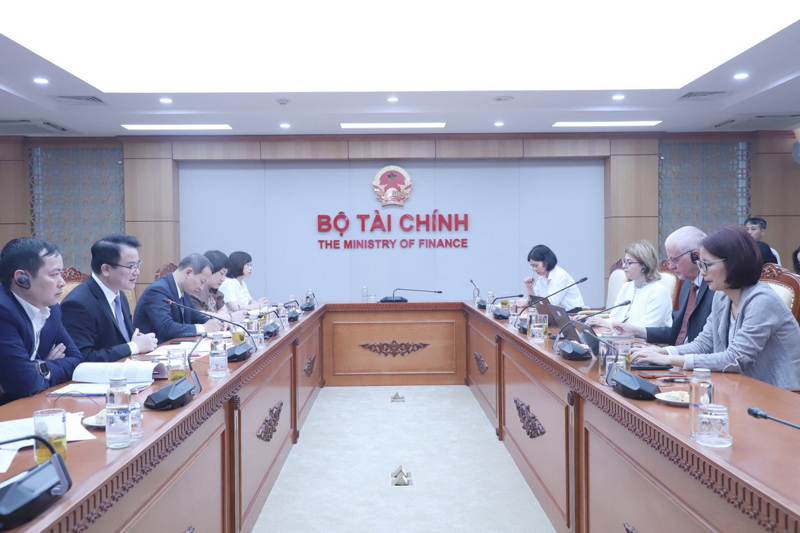Deputy Minister of Finance Tran Quoc Phuong met with experts from the World Bank (WB) in Hanoi on July 22 to discuss the 2024 Debt Management Performance Assessment (DeMPA) for Vietnam.
Since early 2024, the World Bank’s experts has been working closely with the Ministry of Finance (MoF) and relevant agencies to evaluate the country’s debt management practices, benchmarking them against international standards and identifying areas for improvement.
According to the WB’s report, the overall effectiveness of Vietnam’s debt management has been rated positively. The report highlighted significant progress in the legal framework since the enactment of the 2017 Law on Public Debt Management, alongside the issuance of internal procedures to support implementation.
The WB noted several strengths in Vietnam’s public debt management system. These include clearly defined authority, objectives, and borrowing purposes enshrined in legal documents specific to each area. Vietnam also benefits from strong coordination among relevant agencies, and its staff possesses sufficient capacity to manage public debt. The national debt management strategy is of high quality, and key debt data is published regularly.

Financial and compliance audits are conducted annually by the State Audit Office of Vietnam and reported to the National Assembly with public disclosure. There is also effective coordination between fiscal and monetary policies. The WB recognised Vietnam’s strong alignment with fiscal and monetary policies, along with structured borrowing and on-lending procedures. Cash flow forecasting and treasury management have improved significantly, and debt records—both domestic and external—are now maintained in a timely, accurate, and comprehensive manner.
Based on this assessment, Mr. Lars Jassen, the WB’s Senior Debt Management Specialist, proposed several areas for improvement, including more transparent reporting to the National Assembly, lack of specific risk indicators in the annual borrowing plan, and absence of audits for operations, fiscal risk reporting, and debt sustainability analysis (DSA).
Together with the WB expert team, Mr. Jassen also discussed recommendations aimed at further enhancing the effectiveness of public debt management. He emphasized the importance of diversifying funding sources and strengthening the performance of debt management institutions.
Deputy Minister Tran Quoc Phuong emphasized that public debt management is a critical component in Vietnam’s socio-economic development, especially in the current phase of growth.
To meet economic growth targets, Vietnam must accelerate its efforts to mobilize both domestic and foreign capital. At the same time, it is essential to optimize the use of these resources to ensure they deliver real and sustainable benefits.
“As Vietnam continues to develop, preferential borrowing terms will become less available, which will pose greater challenges in terms of resource mobilization. In this context, in-depth assessments and, more importantly, the recommendations provided by the World Bank are extremely valuable,” Deputy Minister Phuong stressed.
He expressed his hope that the WB’s expert team would continue to engage in deeper research and provide consultations at various levels, from technical and operational recommendations to strategic policy advice.
He also called for continued effective collaboration between the WB and the MoF, particularly with the Department of Debt management and External finance, as well as other relevant units, with the goal of enhancing Vietnam’s capacity in public debt management through mutual support and cooperation.









 Google translate
Google translate